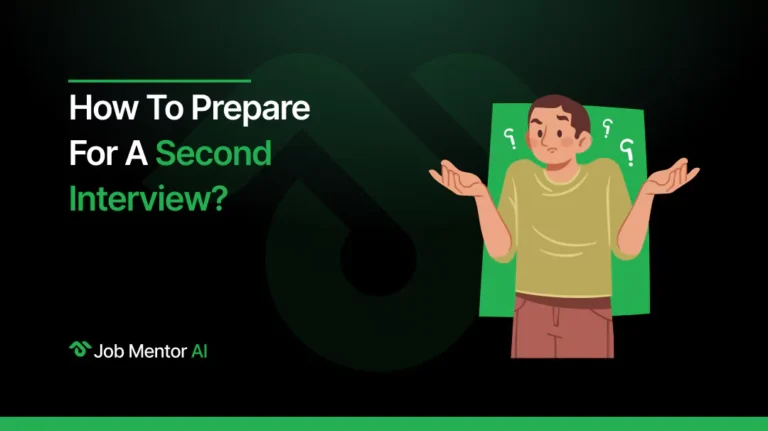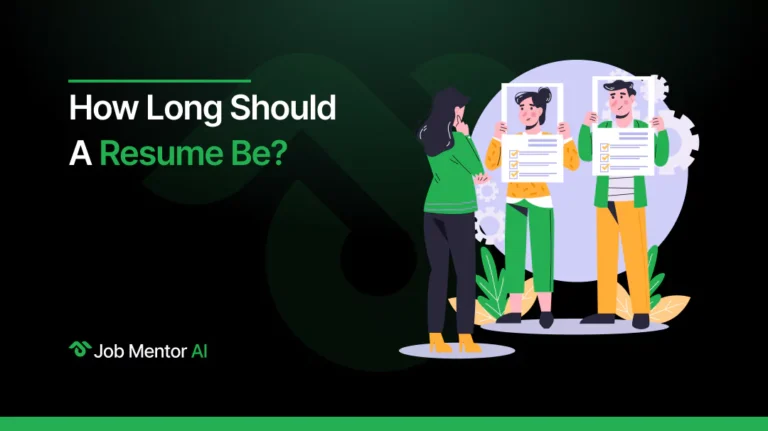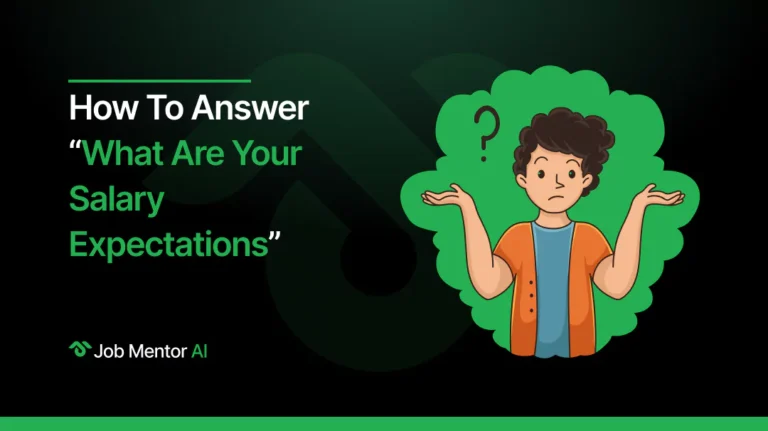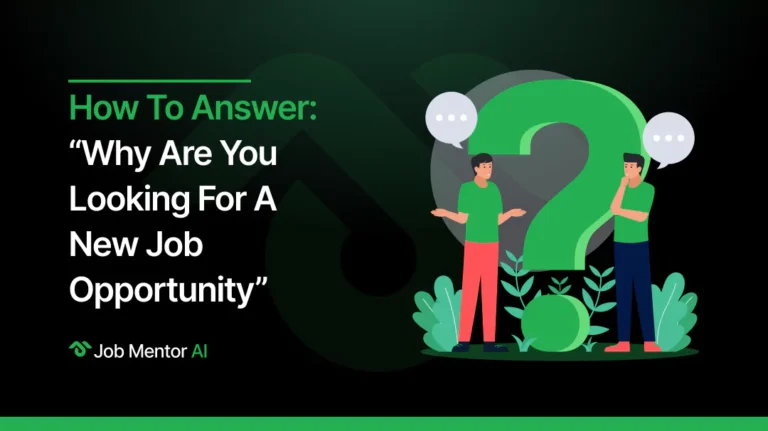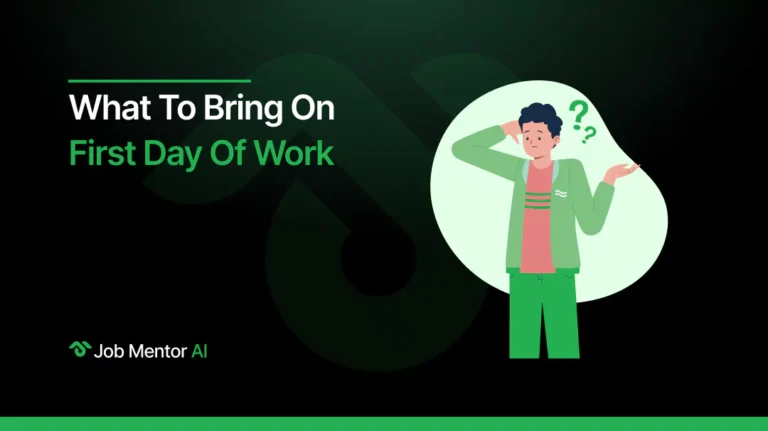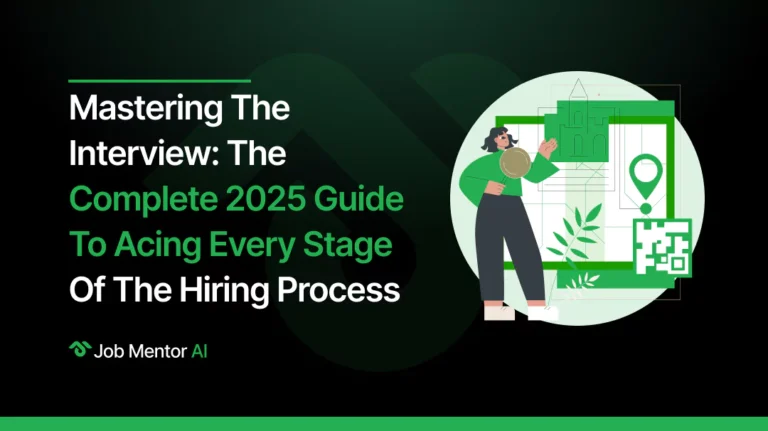How to Answer “How Do You Handle Stress and Pressure” in a Job Interview
- Published
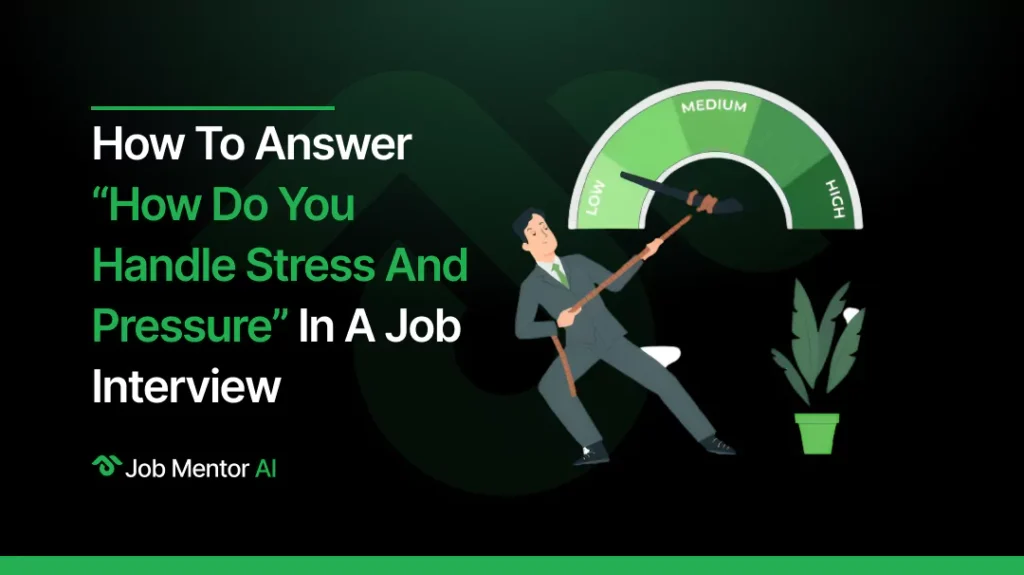
One of the most common and critical questions you’ll encounter in a job interview is: “How do you handle stress and pressure?” On the surface, it may seem like a simple inquiry, but it carries significant weight. Employers ask this to assess how well you can maintain performance, decision-making, and professionalism when challenges arise. Whether it’s a looming deadline, a demanding client, or shifting project priorities, how you handle pressure reflects your ability to thrive in fast-paced or unpredictable environments.
In this blog, you’ll learn not only why this question is asked but also how to craft a thoughtful response using real examples, practical strategies, and smart techniques to leave a lasting impression.
Why Interviewers Ask “How Do You Handle Stress and Pressure”
Employers ask this to gauge your emotional resilience, time management, and ability to problem-solve under tight deadlines or during difficult situations. Stress is inevitable in almost any role, so they want assurance that you can maintain professionalism and effectiveness when challenges arise.
In high-stakes environments, especially where collaboration or customer interaction is key, your answer signals how well you’ll cope with demands. Think of this as an insight into your mindset during those inevitable high-pressure moments.
What the Interviewers Expect to Know
Interviewers are looking for specific qualities and insights when they ask this question. It’s not just about whether you feel stress, but how well you understand your reactions, the methods you use to stay composed, and your ability to turn high-pressure situations into opportunities for effective problem-solving and growth.
- Self-awareness: You recognize what triggers stress and have thought about how to manage it.
- Tactics: You use reliable, practical methods to stay composed and productive.
- Examples: You can point to real-life instances where you effectively handled pressure.
- Fit for the role: Your approach aligns with the role’s stress level and work environment.
As you prepare, consider reviewing common icebreaker interview questions to ease into more complex answers and build confidence during the early part of the conversation.

Answering “How Do You Handle Stress and Pressure”
You need to give a strong and compelling response to this question; it’s important to go beyond surface-level statements. One of the most effective ways to structure your answer is by using the STAR method—Situation, Task, Action, Result. Start by briefly setting the scene (Situation), define your role and responsibilities (Task), explain the concrete steps you took to handle the pressure (Action), and end with the positive outcome or what you learned (Result).
The goal is to convey that stress doesn’t derail your productivity. Instead, you have healthy, proven methods to navigate it effectively. When crafting your response, keep the tone calm and confident. Here are key points to keep in mind:
- Choose a relevant example: Use a situation that aligns with the demands of the job you’re applying for. If it’s a leadership role, pick a scenario that shows how you led under pressure.
- Acknowledge the stress: It’s okay to admit that the situation was challenging as long as you focus on how you handled it constructively.
- Highlight your thought process: Interviewers want to understand how you make decisions under stress. Explain how you prioritized tasks, managed your emotions, or used tools to stay on track.
- Stay positive: Emphasize growth, adaptability, or successful results. Even if things didn’t go perfectly, show what you learned.
- Keep it concise: Stay clear and organized so your answer doesn’t become a ramble. Practicing beforehand will help.
- Manage pre-interview nerves: Staying calm starts before the interview begins. Use breathing techniques, mental rehearsal, or other ways to calm your interview nerves so you walk in with a composed mindset.
Common Mistakes When Answering “How Do You Handle Stress and Pressure”
While the goal is to show composure and resilience, it’s easy to come across as dismissive, unprepared, or lacking self-awareness if the response isn’t thoughtfully crafted. Avoiding these pitfalls will ensure your answer feels honest, strategic, and aligned with what interviewers are looking for. You must avoid these pitfalls:
- Saying “I don’t get stressed” – This sounds unrealistic and detached from reality.
- Giving vague responses – Without giving an example or a clear method, the answer loses its impact.
- Sounding reactive instead of proactive – Interviewers prefer candidates who take initiative under pressure.
- Blaming others or focusing only on problems – Shift the focus to how you resolved the issue, and how you improved moving forward.
Before you step into your interview, skim through these last-minute interview tips to polish your approach.

Sample Questions to Prepare You Further
While “How do you handle stress and pressure?” is a common favorite question, employers often explore the same skill set through a variety of similar prompts. Practicing your answers to these questions not only helps you stay composed but also gives you a chance to refine your storytelling, highlight relevant strengths, and ensure your responses align with the role you’re pursuing.
Entry-Level
- Good Answer: “During my final semester, I had to manage a group project, a part-time job, and exam prep. I created a structured schedule and stuck to a nightly review system, which helped me keep calm and meet all deadlines.”
Poor Answer: “I just pushed through and somehow made it all work.” - Good Answer: “While volunteering at a local event, I was put in charge of handling unexpected changes. I stayed composed, reassigned tasks efficiently, and received positive feedback for keeping things on track.”
Poor Answer: “Things were chaotic, but I just went with the flow and hoped for the best.” - Good Answer: “In my internship, a senior team member resigned unexpectedly. I absorbed extra work, communicated regularly with my manager, and prioritized tasks using a checklist, which helped me stay organized and productive.”
Poor Answer: “I just did what I could and hoped it would be enough.”
Mid-Level
- Good Answer: “In a past role, a client changed requirements last-minute. I broke the task into smaller components, adjusted the timeline, and kept the team informed. We completed the project within two days of the original deadline.”
Poor Answer: “We got it done eventually, but it was a mess.” - Good Answer: “When managing multiple teams, I used Trello and calendar blocking to reduce mental clutter. This made it easier to keep calm during peak workload and ensure I stayed on top of deliverables.”
Poor Answer: “I just handled things as they came without overcomplicating it.” - Good Answer: “While launching a new product, our vendor caused delays. Instead of panicking, I arranged a buffer with our stakeholders and redirected internal resources to minimize disruptions.”
Poor Answer: “It wasn’t our fault, so we waited it out.”
Expert-Level
- Good Answer: “As a department head during a system failure, I had to lead crisis communications. I focused on transparency with executives, split tasks among leads, and we resolved the issue in 36 hours. Post-incident, I led a debrief to improve resilience.”
Poor Answer: “It was chaos, but we somehow got through it with a lot of late nights.” - Good Answer: “During a corporate merger, I coached my team through uncertainty by setting clear weekly goals and hosting open forums. Keeping everyone focused on controllable actions minimized stress and boosted morale.”
Poor Answer: “Everyone was stressed, and I told them to just hang in there.” - Good Answer: “In high-pressure sales quarters, I kept team performance steady by implementing weekly check-ins, stress-relief resources, and flexible hours, which improved overall productivity and reduced turnover.”
Poor Answer: “I pushed the team hard to make sure we hit our targets no matter what.”
Need help refining your answers? Try AI interview answer generator to build customized, polished responses that are tailored to your field and experience.
Strategies to Manage Stress You Can Mention
When answering how you handle stress, it’s helpful to mention specific techniques you rely on to stay calm, focused, and productive. These strategies show that you don’t just react to pressure, you manage it thoughtfully. Sharing a few of these methods in your response adds credibility and reinforces your ability to perform well under challenging conditions.
- Time Management: Prioritizing urgent vs. important tasks using tools like calendars, task lists, or productivity frameworks.
- Communication: Proactively seeking clarification or support before stress escalates.
- Mindfulness Techniques: Breathing exercises, quick breaks, or walking to reset mental clarity.
- Physical Health: Exercise and sleep contribute to better stress regulation.
- Breaking Down Tasks: Tackling large projects step by step makes challenges less overwhelming.

Bonus Tips for Making Your Answer Memorable
A strong answer is not just about content; it’s also about how you deliver it. These extra tips can help you leave a lasting impression and show that you’re both thoughtful and well-prepared.
- Use numbers when possible: e.g., “We reduced delays by 40%.”
- Be specific and brief: Don’t ramble; clarity is key.
- Reflect your personality: Let your calm or adaptable side shine through.
- Rehearse aloud: Practicing can reduce anxiety and polish delivery.
Understand what to bring to an interview to ensure you’re fully prepared beyond just your answers.
Key Takeaways
Understanding how to handle stress and pressure during an interview has a significant impact on making a great impression. It may be difficult to answer the question because of stress or pressure. Being able to stay calm may increase your chances of getting hired.
- If you expect the Question to be asked, it makes you ready for the question
- A strong answer reflects that you recognize stress triggers and have developed methods to manage them without compromising performance.
- Incorporate actual scenarios from past experiences
- Stay away from overused lines like “I don’t get stressed.”
- Tailor your answer to the role and industry.
- Rehearse your answer aloud to sound confident and natural. You can use an AI interview assistant to simulate interview scenarios tailored to your role and experience.
Table of Contents
Frequently Asked Questions
What causes stress and pressure in an interview?
Some of the many reasons that cause stress and pressure in an interview are:
- Self doubt
- Fear of judgement
- Unexpected questions
- New environment
- Negative self-talk
How to handle stress and pressure?
To handle stress and pressure, you can follow these steps:
- Identify the cause
- Practice a deep controlled breathing technique
- Prioritize the task accordingly
- Ask for support from colleagues and seniors
Why do interviewers ask ”How Do You Handle Stress and Pressure”?
The question ”How Do You Handle Stress and Pressure” is normally asked by the interviewer to:
- To understand how you handle stress and pressure
- The techniques you follow to stay calm
- To recognize what caused the stress
- To recognize how you perform under pressure
How do I answer “How Do You Handle Stress and Pressure”?
The question “How Do You Handle Stress and Pressure,” can be answered by:
- Providing a real-life example
- Admit the situation was challenging, yet you pulled through
- Show the interviewer your thought process for handling tasks
- Tell the interviewer how the situation helped you grow
- Make it short yet concise
- Use breathing techniques to calm your nerves
What are some strategies to reduce stress?
Stress is caused when something unexpected happens, so you can follow these strategies to reduce stress:
- Prioritizing urgent/important tasks first
- Communicating with colleagues to get a different perspective
- Breathing techniques
- Regular exercise
- Breaking down a large project to make it less challenging

